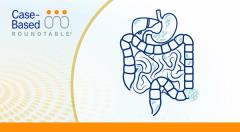
CheckMate 649 Study in GI Cancers Shows Survival Benefit for Nivolumab/Chemotherapy
Jaffer A. Ajani, MD, discusses the design and results of the CheckMate 649 study of nivolumab, ipilimumab, and chemotherapy for gastric cancers.
Episodes in this series

Jaffer A. Ajani, MD, professor in the department of gastrointestinal medical oncology, division of cancer medicine at The University of Texas MD Anderson Cancer Center, discusses the design and results of the CheckMate 649 (NCT02872116) study of nivolumab (Opdivo), ipilimumab (Yervoy), and chemotherapy for gastric cancers.
The phase 3 CheckMate 649 trial randomly assigned over 2000 previously untreated patients with advanced gastric or gastroesophageal junction adenocarcinoma 1:1:1 to receive either nivolumab plus ipilimumab, nivolumab plus chemotherapy, or chemotherapy alone. The primary end points were overall survival (OS) and progression-free survival (PFS) by blinded independent central review in patients receiving nivolumab plus chemotherapy versus chemotherapy alone whose tumors had a PD-L1 combined positive score (CPS) of 5 or more.
In the primary analysis, there was a median follow-up of 13.1 months for nivolumab versus 11.1 months for chemotherapy alone. The hazard ratio for OS was 0.71 favoring nivolumab (98.4% CI 0.59-0.86; P < .0001). The hazard ratio for PFS also favored nivolumab (HR, 0.68; 98% CI, 0.56-0.81; P < .0001). However, at later follow-up, there was no OS benefit for nivolumab plus ipilimumab versus chemotherapy. Additionally, there were increased adverse events (AEs) in this arm that led the data monitoring committee to close enrollment to nivolumab/ipilimumab early.
Ajani says nivolumab plus chemotherapy will be used based on these results, but nivolumab plus ipilimumab will not.
TRANSCRIPTION:
0:08 | It was a very unique trial because it had not only more than 2000 patients, but it had 2 experimental arms and 1 standard arm. One experimental arm was nivolumab plus ipilimumab. and the second one was nivolumab plus chemotherapy. It turned out that nivolumab plus chemotherapy, particularly in those patients with a tumor having a CPS score of 5 or higher, had significant benefit in PFS, response rate, OS, and there was no significant safety signals. So it all looks very good.
0:59 | However, [with] the nivolumab plus ipilimumab, it turned out to be a safety concern [with] a lot of AEs. So that arm was stopped [enrolling] by the data monitoring committee early because they saw all the safety signals. However, when nivolumab plus ipilimumab was compared with the control arm [of] chemotherapy, it was not better. So it looks like for adenocarcinoma, nivolumab plus ipilimumab is not going to be used, but nivolumab plus chemotherapy will definitely be used.















































